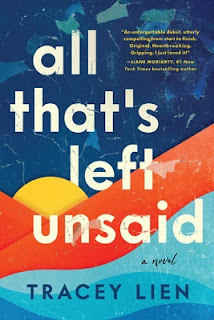Annie Hartnett's Unlikely Animals is a quirky, unique, interesting story – the likes of which I can honestly say that I've never read before. I'm actually not sure if I'll be able to describe the "uniqueness" of this story accurately – I will certainly try, but I recommend reading this one yourself to get the full experience of it.
On the surface, this sounds like a perfectly ordinary "small-town homecoming" story where the main protagonist Emma Starling decides to return home to her family in Everton, New Hampshire after having dropped out of med school in California. Having lost her way, Emma was hoping to escape back to her hometown to "figure things out" and put her life back on track, which turns out to be easier said than done given what she has to face upon arrival: her judgmental mother Ingrid who doesn't seem to approve of anything she does; her younger brother Auggie, whom Emma has always been at odds with growing up, with their relationship deteriorating even further after Auggie's recent stint in rehab; and her father Clive, who is dying from a degenerative brain disease that causes him to hallucinate not just small animals, but also the ghost of a long-dead naturalist, Ernest Harold Baynes. But that's not all….Emma is also shocked to find out that her best friend from high school, Crystal Nash, has been missing for months, but with the local police writing the case off due to Crystal's drug use prior to her disappearance, no one is making an effort to find her – that is, except for Emma's dad Clive, who remains steadfast in his belief that Crystal must still be alive and so spends most of his days putting up missing persons posters all around town. What ensues is a series of events that come together and form a story that is both poignant and wistful, yet also funny and heartwarming, all at the same time.
One of the things that made this story so unique was Harnett's ability to combine the realistic and the fanciful to such great effect. On the one hand, there were characters who felt so real, with their universally relatable struggles, having to deal with real-life issues such as drug addiction, infidelity, terminal illness, parental expectations and judgment, strained friendships, sibling rivalry, the ups and downs of relationships in general, etc. – basically ordinary people dealing with familiar situations that so many of us could resonate with. Yet on the other hand, there were also fantastical elements that were more than a little "magical" – such as a character hallucinating small animals and having conversations with a ghost, a cute pet fox that is friendly with humans and acts more like a dog than a fox, a giant white dog that thinks and acts more like a human than a dog, and most amusing of all, an entire story narrated by the spirits of a bunch of dead folks from their "forever resting place" at the Maple Street Cemetery (this was my absolute favorite element of the story).
Genre-wise, this felt like a mashup that didn't really fit neatly in any one category. In addition to the fantasy / magical realism and contemporary fiction elements mentioned earlier, there were also elements of mystery / suspense (what happened to Crystal and the ongoing search for her), historical fiction (the story of nineteen-century robber-baron Austin Corbin, the real-life Ernest Harold Baynes, who was a naturalist once employed at the park bearing Corbin's name, and the real animals that Harold and his wife lived with during their lifetime), and some romance (a very minor element in the story). In her Author's Note (which is a must-read) as well as in interviews, Hartnett talked about how some of the scenes in the book were based on "scraps" from her real life (such as the deer scene for example or her own experience as a sixth grade teacher when she was twenty two) — so there were some biographical elements mixed in as well!
This was a story with both humor and heart that I'm absolutely glad I got the chance to read (thank goodness for book club, as I probably wouldn't have picked this one up otherwise). Having enjoyed this book as much as I did, I've also put Hartnett's debut novel, Rabbit Cake, on my TBR — definitely something to look forward to in the future.










